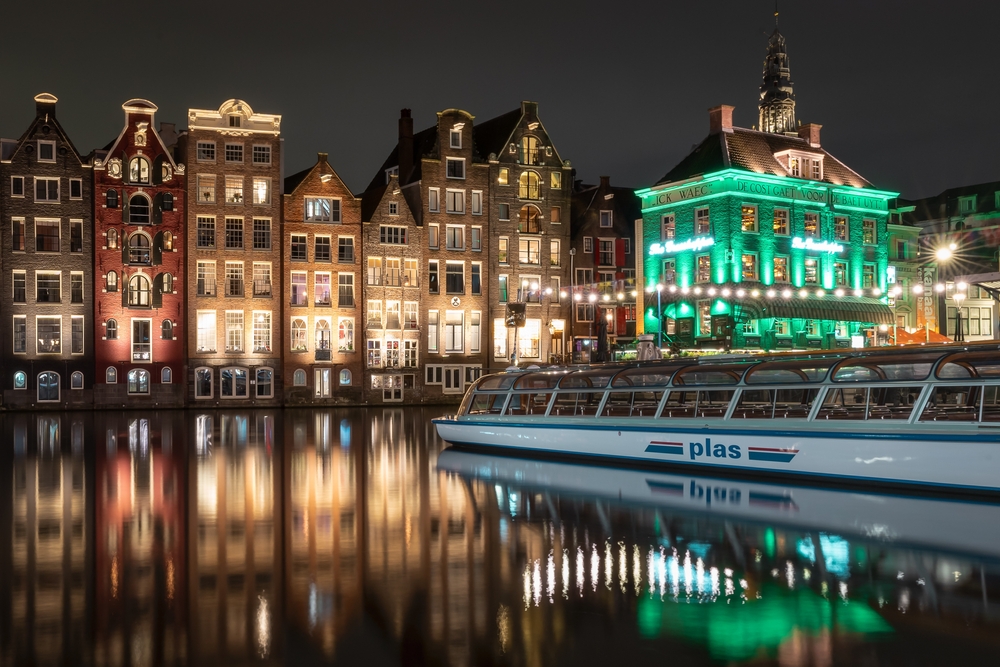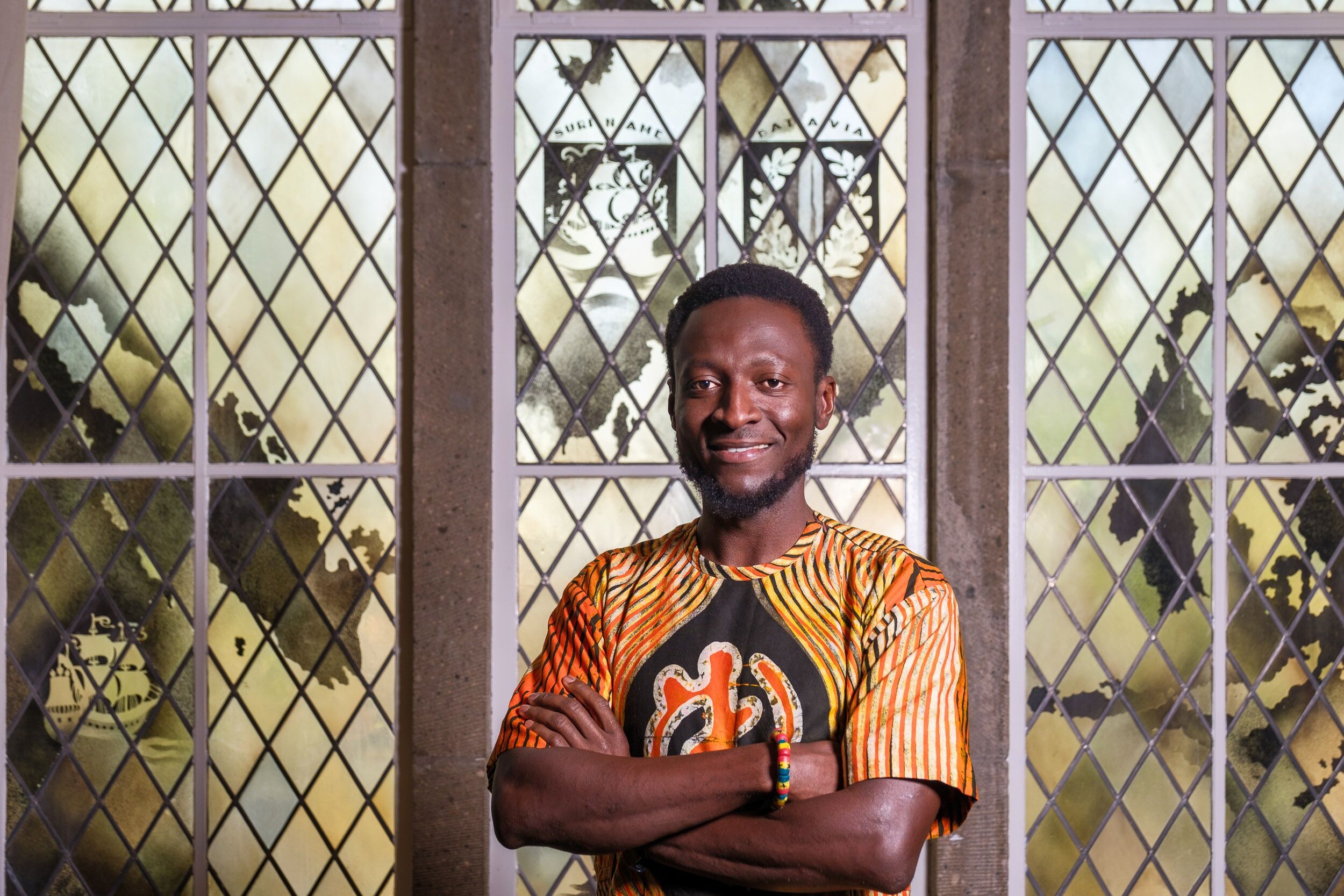What stories do Amsterdam’s tour guides tell, and at which locations, if they want to talk about slavery and the city’s colonial past (or prefer to keep quiet about it)? And why? Her investigations into these questions not only let Simone Berg successfully complete her Master’s thesis in Cultural Geography but also provided the basis for a publication in the Journal of Heritage Tourism, as a co-author of assistant professor Emmanuel Akwasi Adu-Ampong.
Berg did her research as part of Adu-Ampong’s Veni project on slavery-related tourism. She studied the extent to which Amsterdam tour guides incorporate slavery and the colonial past in boat trips and guided walking tours. She and Adu-Ampong also created a map showing where the guides tell which stories about these aspects of the history of Amsterdam and the Netherlands.
Berg discovered that in fact the guides don’t pay much attention to these aspects. Why? ‘The guides think it’s important to have a positive atmosphere and good vibes during their tours. They assume people book a tour to have an enjoyable day out and topics such as slavery and the colonial past are too demanding and emotionally charged for that. So they may briefly mention it, but they don’t discuss it in detail,’ she explains.
No coincidence
The slave trade and colonization played a key role in the history of Amsterdam and the Netherlands, directly affecting prosperity and economic development between the sixteenth and nineteenth centuries. Berg says it is quite shocking that such an important and emotionally charged aspect of the city’s history is still largely unmentioned. That is no coincidence, as Adu-Ampong explained previously in Resource (‘The embodied absence of the past’).
She doesn’t expect much change from individual tour guides in this regard. ‘The big tour organizations need to take the initiative. They decide what tourists are offered: which tours, with which stories.’ She doesn’t see that happening soon. ‘I expect tourists that want a more complete picture of Amsterdam’s history will continue to have to rely on specific initiatives such as the Black Heritage Tours Amsterdam.’
ERC Starting Grant
On Thursday, it was announced that the European Research Council had awarded Akwasi Adu-Ampong a Starting Grant of 1.5 million euros for additional research on ‘slavery tourism’. Working with a postdoc and three PhD candidates, he will investigate the frictions associated with slavery-related and colonial heritage in modern-day tourism, looking at three colonial networks. In addition to the triangle of Ghana-Netherlands-Suriname, which is the setting for his Veni research project as well, he will study the Angola-Portugal-Brazil network and the Namibia-Germany-Brazil network. Four other Wageningen researchers received Starting Grants this year in addition to Adu-Ampong.

 Unsuspecting tourists may not see it, but many of Amsterdam’s historic canalside houses were built with money earned from plantations or the transatlantic slave trade. Photo Shutterstock
Unsuspecting tourists may not see it, but many of Amsterdam’s historic canalside houses were built with money earned from plantations or the transatlantic slave trade. Photo Shutterstock 

